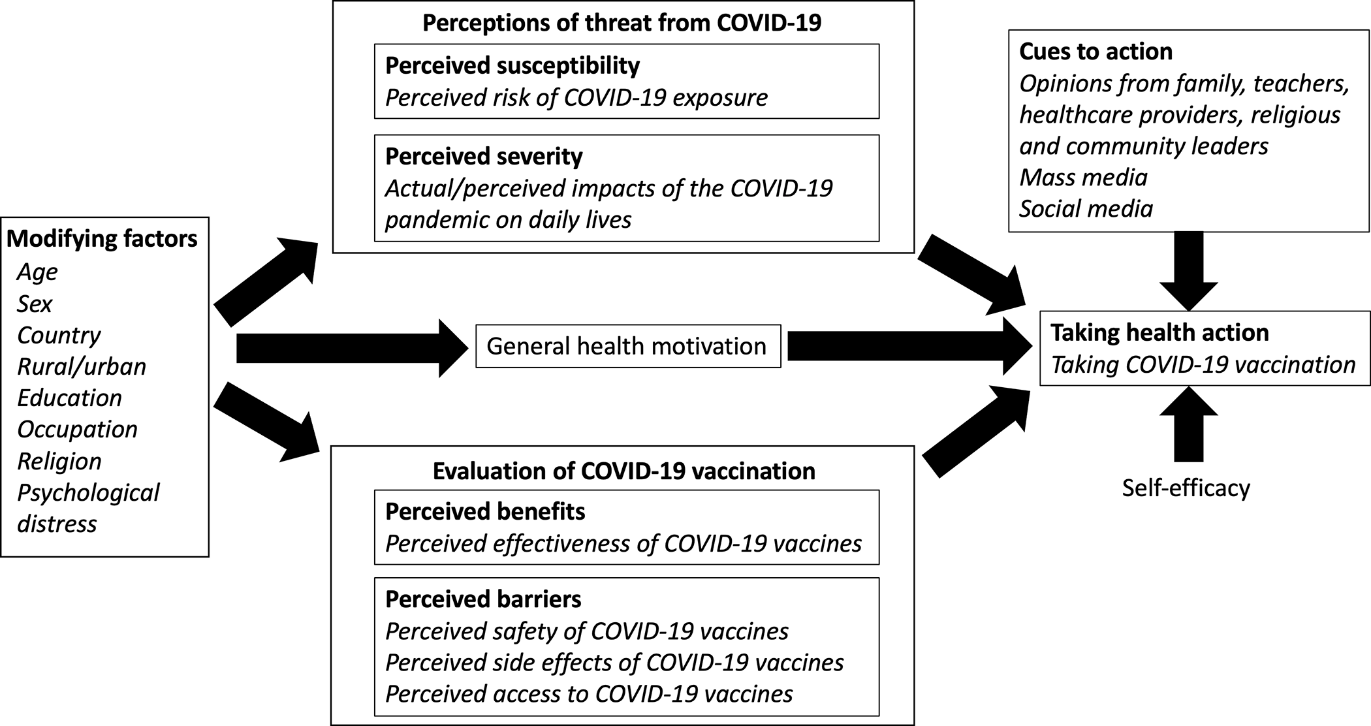COVID-19 vaccine hesitancy rates are up to 88% among adolescents in some sub-Saharan African countries, often because of concerns over safety and efficacy

Press-only preview: https://plos.io/3Drr1a0
Article URL: https://journals.plos.org/
Article Title: COVID-19 vaccine hesitancy and its determinants among sub-Saharan African adolescent
Image Caption: Conceptual framework for COVID-19 hesitancy among adolescents based on the health belief model.
Image Credit: Wang et al., 2022, PLOS Global Public Health, CC-BY 4.0 (https://creativecommons.org/
Image Link: https://plos.io/3xsPxDE
Author Countries: USA, Nigeria, Tanzania, Ghana, Ethiopia, Burkina Faso, South Africa
Funding: This work was supported by institutional support from Harvard T.H. Chan School of Public Health, Boston, MA (WWF), Harvard University Center for African Studies, Boston, MA (WWF), Heidelberg Institute of Global Health, Germany (TB), and the George Washington University Milken Institute School of Public Health, Washington, DC (ERS). The funders had no role in study design, data collection and analysis, decision to publish, or preparation of the manuscript.
Competing Interests: The authors have declared that no competing interests exist.
About PLOS Global Public Health
PLOS Global Public Health is a global forum for public health research that reaches across disciplines and regional boundaries to address some of the biggest health challenges and inequities facing our society today. For more information, visit https://journals.plos.org/
Media and Copyright Information
For information about PLOS Global Public Health relevant to journalists, bloggers and press officers, including details of our press release process and embargo policy, visit https://plos.org/press-and-
PLOS Journals publish under a Creative Commons Attribution License, which permits free reuse of all materials published with the article, so long as the work is cited.
About the Public Library of Science
PLOS is a nonprofit, Open Access publisher empowering researchers to accelerate progress in science and medicine by leading a transformation in research communication. We’ve been breaking boundaries since our founding in 2001. PLOS journals propelled the movement for OA alternatives to subscription journals. We established the first multi-disciplinary publication inclusive of all excellent research regardless of novelty or impact, and demonstrated the importance of open data availability. As Open Science advances, we continue to experiment to provide more opportunities, choice, and context for readers and researchers. For more information, visit http://www.plos.org.
Disclaimer
This press release refers to upcoming articles in PLOS Global Public Health. The releases have been provided by the article authors and/or journal staff. Any opinions expressed in these are the personal views of the contributors, and do not necessarily represent the views or policies of PLOS. PLOS expressly disclaims any and all warranties and liability in connection with the information found in the release and article and your use of such information.

